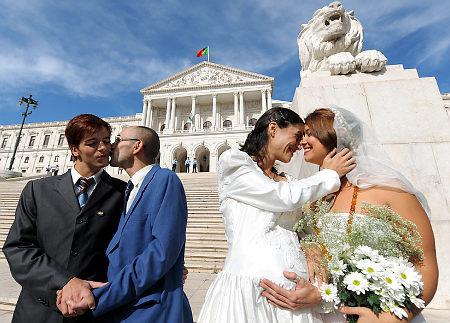
A miniature Wild West town served as a backdrop to a very interesting thought. There is a scene in Rango where the eponymous character kisses his love interest, the sassy lizard named Beans. The two perform a perfectly heteronormative act in a theater packed with young children, and I thought about how they were all passively learning to recognize this as suitable conduct. I realized that I had been taught the exact same thing. Then I realized:
As a young boy, I was never taught to be attracted to men as a child. And yet now, as a teen, I identify as gay.
This may not seem particularly insightful in its condensed state, but this led me to ruminate further on how attraction could be taught to young children. Within our very own households, we are captive audiences to the physical and emotional interplay of our very own parents, of every television show ever created, even in the cartoons that we sit in front of for hours on the weekends. Heterosexuality is expounded and inculcated into our subconscious at every waking moment.
I was in the exact same boat. I come from the typical four person family unit, with a mom and dad, and one sister. Nothing strange. All my life, my parents gently nudged my sister and I towards the path of falling for the opposite sex.
Then something extraordinary occurred to me. I started to develop strange feelings towards boys. It all started when I developed an unusual infatuation with my upper elementary school teacher. I felt an unwarranted link to him, and I felt myself looking into his blue eyes a little too much. I began to evaluate men, something I had never previously been taught to do.
In middle school, I was enamored with another blue-eyed boy, and I quickly developed an unwarranted obsession with blond men that remains with me to this day. In the locker room I began to eye his muscles that had formed from strenuous swim practices. I began to have dreams about him at night and I sustained myself on fantasies that were not acted upon until years later.
These feelings were so delicate, yet led to prurient fantasies that I could barely envision at that young age. My mind took me places that were previously not thought of, and I began to create my own mindset that quickly fleshed out into a full blown individualist culture of which I was the only practitioner. I had never known how to appreciate a man’s eyes, or the small of his back, or how the collar bone jutted and served as curtain rods for perfectly toned pecs. I developed a keen appreciation of a thin little waist and nice sculpted facial features. I began to piece together, without any outside help from a larger society, how to appreciate men from the standpoint of a male. It was an act of almost foolhardy innocence, of solemn naturalness.
Homosexuality, when we recognize it in ourselves in our youth, is probably one of the most honest encounters with our own identities that we will ever have. Beyond that, once we discover the gay community and determine to adhere to the tenets of what sometimes resembles a cult, we begin to lose that seemingly inalienable connection to our own youthful sense of personal discovery. We are absorbed into a larger culture which, in recent years, has been absorbed into the greater American context.
We have lost an intimate connection with our sexuality that is no longer nurtured by our society. Social construct abolished this in heterosexuals with the inception of organized religion. By institutionalizing the need for men to procreate and defend the fertility of women, we have put sexual discovery by the wayside in the name of social responsibility. In that sense, homosexuality has become a more natural inclination since it is something developed from within, and not from any sort of societal bullying. I think that those years of discovery for gay men and women are amongst the most beautiful of our lives, only to be destroyed by a more transparent, contemporary gay community.
I do not believe that heterosexuals are an abomination. I think that social pressures ween people of their own recognition of their sexuality. Those children watching Rango learned that kissing between boys and girls is expected, because they saw it in a movie, and because they saw their parents do it in the kitchen one morning. Gay people are more present and they inform behavior in burgeoning gays. Of course, this will lead to the acceptance of a minority, and facilitate the healthy development of gay teens through those troublesome years, but there is a more significant problem at the heart of the issue: institutionalized sexuality leads to a diminished understanding of our individual experiences and our perceived sexuality and how that applies uniquely to the individual removed from the larger whole. In the modern world, we all wish to emulate the deified paradigms of perfection when really you should promote yourself to that lofty position. The problem is that we no longer know who we are without comparing ourselves to the standard issue. And so, we are lost to ourselves but substitute our lack of identity by doing what is good for the continuation of a functioning society.
Alec also writes for the BAM blog, where this article was originally posted

